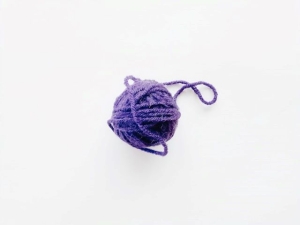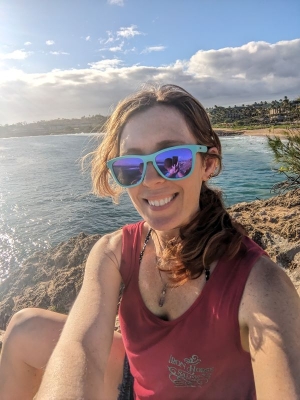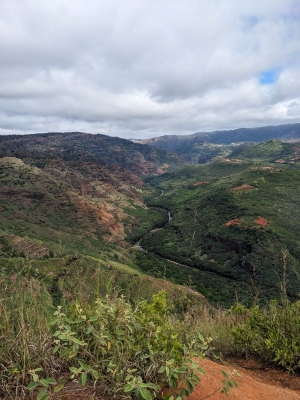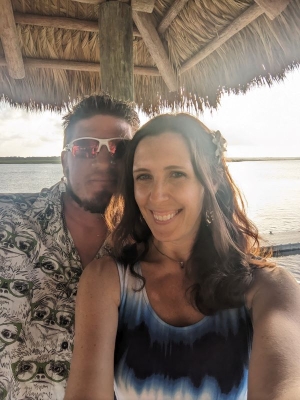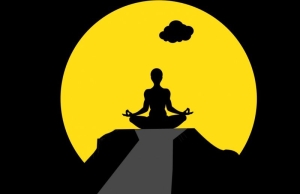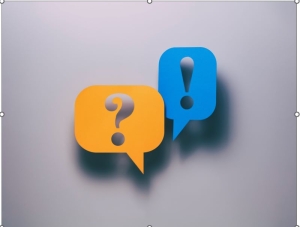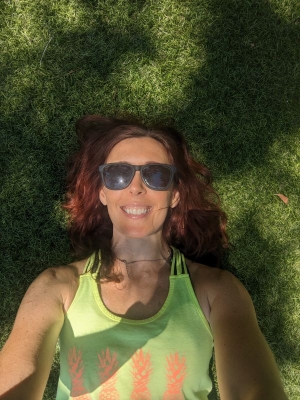Kayci
The Correlation Between Abandonment and Anxious Attachment
The first time I noticed it was in second grade. I was laying in my childhood bed, staring at the shapes that looked like faces on the wooden wall next to me, sobbing. I missed my best friend and couldn’t wait to see her again at school on Monday.
It was Saturday morning and she had just left minutes ago from a Friday night sleepover at my house. The night before we ate pizza and watched Disney movies in the basement, then we played with my collection of My Little Ponies, which I had meticulously spaced out in rows and columns by color on the basement floor. If we slept at all, it was in sleeping bags in front of the fireplace. Mostly we stayed up, giggling and laughing, me not wanting the night to end because of the emotions that would come for me when she left.
As a child, I couldn’t begin to understand why I felt immense sadness after my friend left on Saturday. I just knew that I missed her and missed what I thought was the best night of my life.
Unraveling
Recently, I have felt as if I am unraveling. I am watching myself fall apart mentally, emotionally, and maybe even physically. It’s uncomfortable and I am resisting. I want to feel whole again. I want to be in control of my life again. Just when I feel that I have a grasp on this thing we call life, another wrench is thrown into the proverbial smooth running machine.
I’ve been on an official healing journey for over three years, but really, the journey began many years before that.
How to Find Strength When All Seems Lost
The human mind is more powerful than we can ever fathom. When you start to filter in positive thoughts, your life will begin to transform. ~Buddha
Life tends to either build you up or knock you down, and we never know which one it will be at any given moment. The latter seems to be happening to me lately. I am caught in a chaotic swirl of the universe’s energy that caused a series of bad luck events. All of them happening within a three-month span knocked me down for the count. I didn’t want to get back up. I wanted to lay on the ground, hiding from the world so that nothing else could get me.
When one negative event after another gives you the proverbial punch in the face, it can be hard to think clearly or rationally. Emotions tend to take control and make everything worse. The mind starts spiraling into a paranoid view of the world. “What else is going to happen?” haunts your thoughts, despite your best efforts to remain positive.
Transitions
I started this website to focus on loss and the complicated relationship it has with grief, depression, and loneliness. The rollercoaster of emotions that naturally comes along with losing a loved one or something in your life that you cared deeply about sends you to parts of yourself that you would rather forget existed. The grief inevitably brings out feelings that once lay dormant and then hijacks every part of your body, brain, and heart.
I have also written about how I have learned to use new-found tools and support from others to overcome the challenges and paralyzing effects grief creates. From podcasts I have listened to, to books I have read, to supportive friends, family, colleagues and healing retreats, I spent the better part of two years trying to figure out how to heal.
Christmas in Kauai
There have been very few Christmases that I haven’t spent with my family in Pennsylvania. Growing up in a small town, the holidays were some of the highlights of my childhood. A crisp morning greeted us on the short walk to the humming car, pre-heated and all ice crystals melted from the windshield. The air smelled fresh and clean, as if the snow and cold hit a reset button on the usual scents of, where I grew up, nearby cattle farms.
Expect the Unexpected
Two years ago, in December of 2021 I spent the Christmas and New Year’s holidays by myself, exploring the countryside and cities of North Carolina, searching for places to feel like I belonged, for a place I could call my home. It was a tumultuous time for me. I was still grieving and trying to heal from the loss of my husband and my life in an unexpected divorce. My heart leaked with failure, depression, and pain. My mind urged me to run far away from the pain and memories of my past.
Traveling Alone Vs Traveling Together
“Transitions are almost always signs of growth, but they can bring feelings of loss. To get somewhere new, we may have to leave somewhere else behind.” ~Fred Rogers
For the past two years, I have traveled to a number of places on my own. I made these trips because after my divorce, reality hit: nothing is guaranteed in this life and I wanted to make sure I enjoyed as many places as possible. I was still a living, breathing, functioning human being. Losing someone that meant so much to me was not in my plan, but traveling was, and always will be. I set about making lists of all the travel destinations I wanted to pursue, along with times and dates for these journeys. Then I started planning and preparing.
Our Overthinking Minds
“Do not dwell in the past. Do not dream of the future. Concentrate the mind on the present moment.” ~Buddha
How Our Thoughts Can Hinder or Heal
I was probably 12 or 13 years old when it started. I was sitting at the kitchen table in my childhood home, feeling left out, depressed, and envious. Nanny was in the living room with my younger sister and brother, and they were joking and giggling about something. I don’t recall what they were laughing about, and I don’t think it was at my expense, but at that moment I told myself no one loved me and I didn’t belong.
How Losing Everything Helped Me Gain Much More
“Life begins on the other side of despair.” ~ Jean-Paul Sartre
When what appeared to be my forever life crumbled before my eyes a few years ago, I couldn’t see a way out of my despair and pain. All the memories, conversations, trips, and Netflix binges vanished along with my husband’s love, my house, and my happiness. I couldn't imagine a life without my husband. I had formed habits and routines around the life that he and I had created. I had been in a comfort bubble with no desire to leave.


